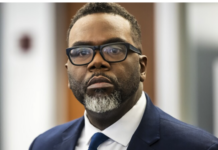Starting this Friday, a significant hearing will examine former President Trump’s claim that special counsel Jack Smith lacks authority. The case involves allegations that Trump misappropriated national security secrets and is set to go to trial on Friday, though not in the way Smith expected.
U.S. District Judge Aileen Cannon has indefinitely postponed the case, which appears to be months away from being prepared for a jury, if it even reaches that point. At the same time, she has scheduled a multi-day hearing in her Fort Pierce, Florida, courtroom to investigate whether Smith, the case’s chief prosecutor, was appointed unconstitutionally or is operating without legal authority.
This claim by Trump is an ambitious endeavor to dismantle the entire case. Many courts have previously rejected almost identical constitutional challenges to other special counsels. Cannon’s decision to allocate substantial time and resources to this argument demonstrates her distinctive approach. Critics suggest that Cannon’s handling of the case indicates preferential treatment for Trump, who appointed her to her position during his final year in office.
The hearing on Trump’s challenge to Smith’s authority will commence on Friday and resume on Monday morning. Later that day, Cannon will listen to arguments on Smith’s request for a court order to prevent Trump from spreading false information about the FBI raid of Mar-a-Lago, which led to the criminal charges. Furthermore, Cannon has scheduled another hearing on Tuesday to address an additional motion by Trump that could derail the case.
Any indication from Cannon on her thoughts about the appointment issue will be scrutinized closely, as it has the potential to undermine Smith’s entire operation. If she were to declare Smith’s position unconstitutional, it would throw both the classified document case and Smith’s other case accusing Trump of plotting to undermine the 2020 election into question.
Trump’s choice to challenge Smith’s constitutionality before Cannon is significant because his attorneys did not raise this argument in the election case, which was assigned to a different judge in Washington, D.C., and is currently on hold while the Supreme Court reviews Trump’s request for immunity.
The hearing starting on Friday will address Trump’s assertion that Attorney General Merrick Garland did not have the authority to appoint Smith. Trump argues that federal law does not recognize the establishment of special counsels and that Garland is improperly using a Justice Department funding source to pay for Smith’s work.
In response, Smith’s team maintains that creating special counsels is a common internal procedure within the Justice Department, fully within the discretion and control of the attorney general. Federal courts have largely supported this view for the past 25 years, including during the investigation led by special counsel Robert Mueller into allegations of Russian interference in Trump’s 2016 presidential campaign.
The upcoming hearing in Florida will be a critical test for both parties, with the nation eagerly awaiting the resolution of the myriad issues involved.






